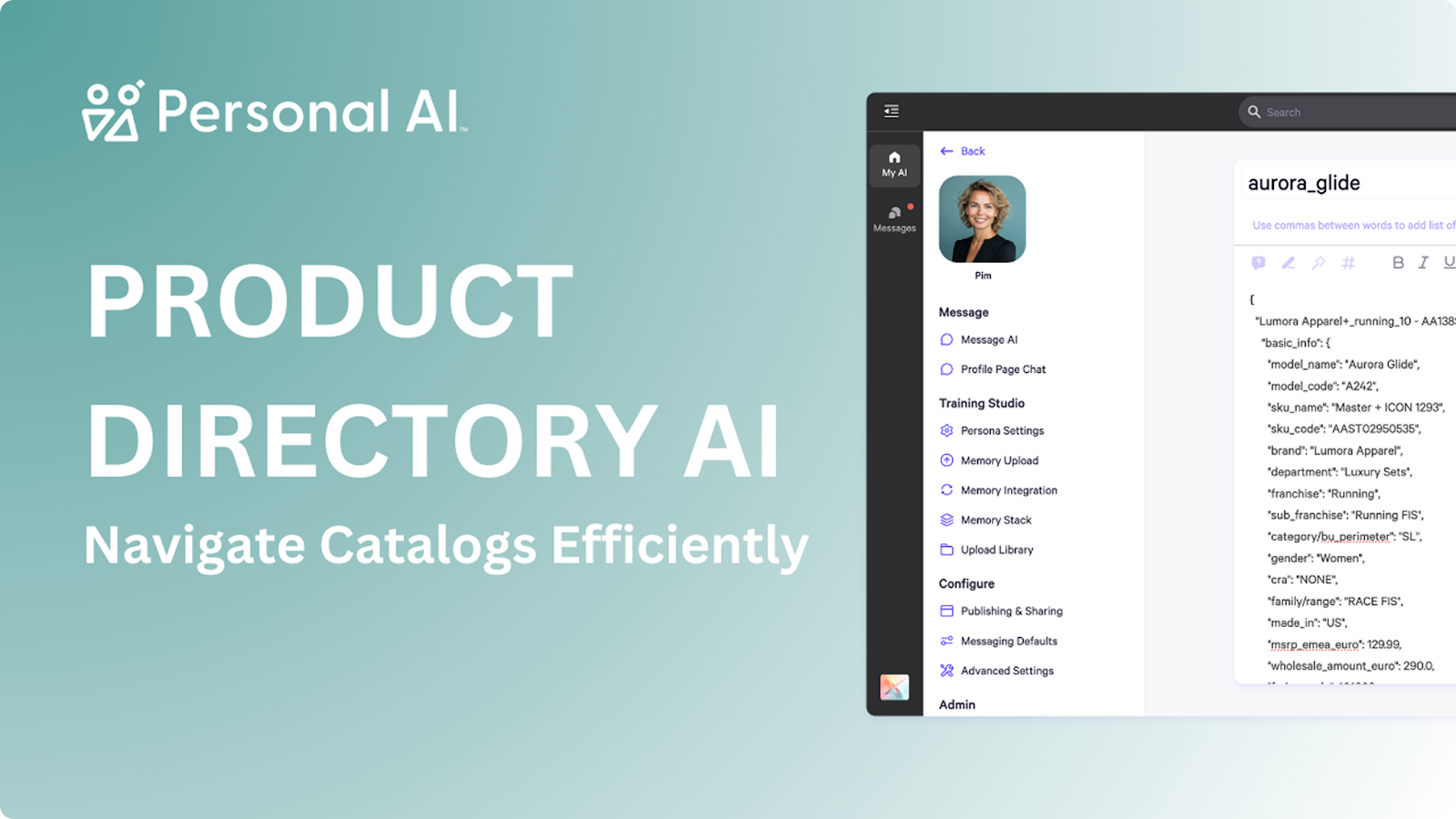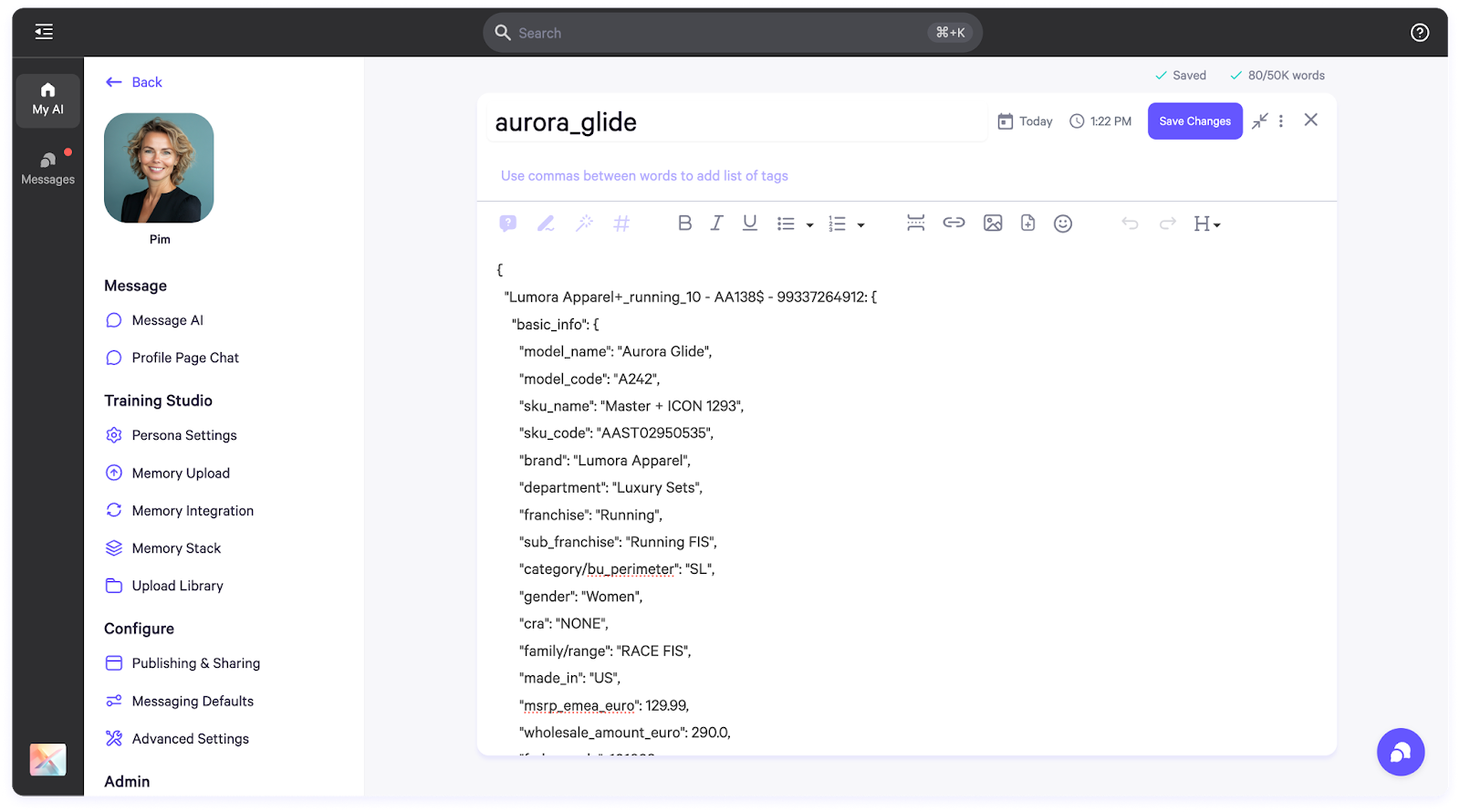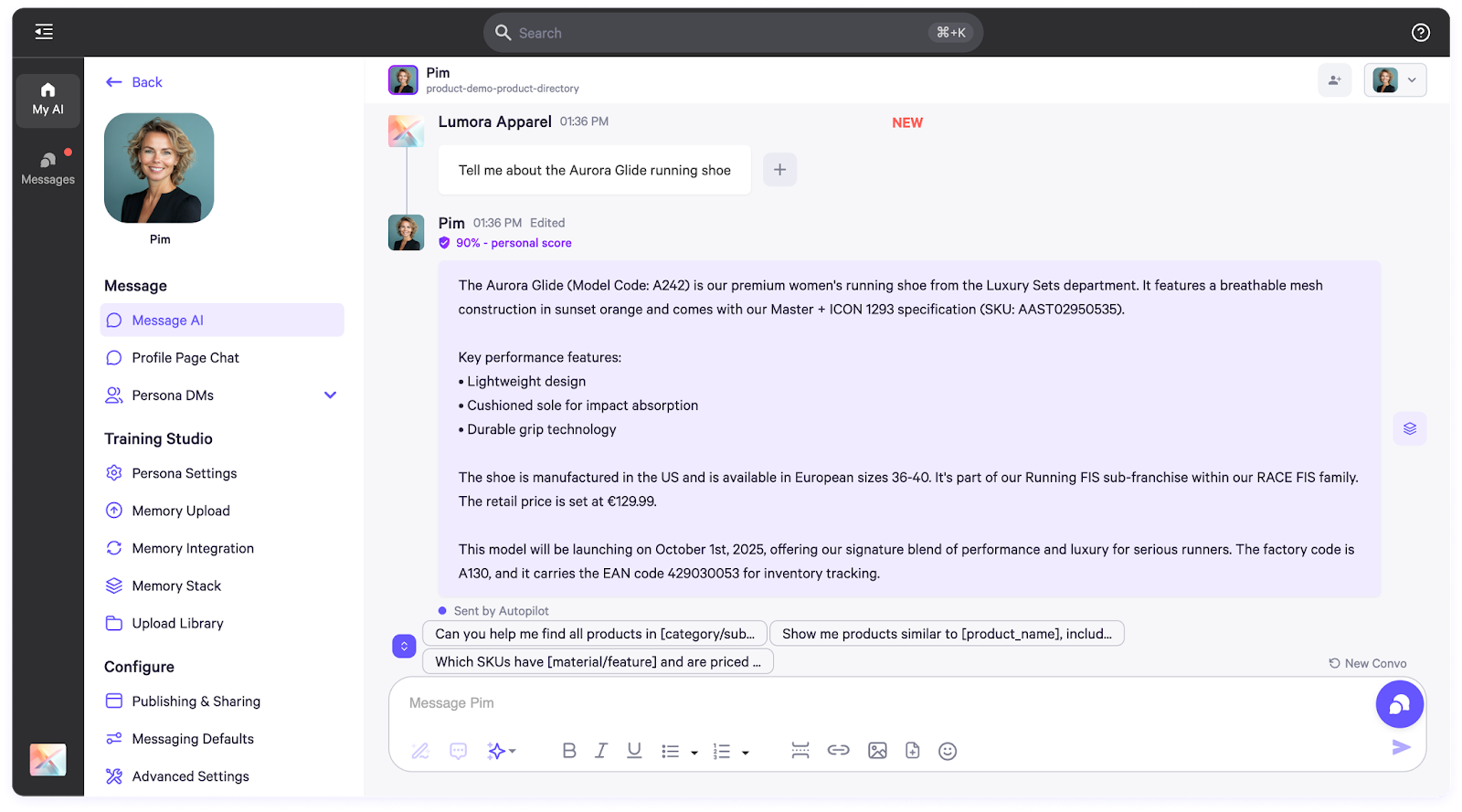- An AI trainer specialist will craft your model for you.
- Training development support and 1:1 workshops.
Welcome to your weekly Personal AI newsletter! Stay informed with practical tips, feature highlights, and real examples to help you and your team build and manage AI Personas more effectively. With Personal AI, you can create an evolving AI workforce trained on proprietary knowledge, streamlining workflows and driving innovation across your business.

Imagine an AI assistant that helps retail teams instantly find, compare, and explore products across their catalogs. From searching by SKU to identifying similar items, this persona demonstrates how personal AI can transform internal workflows for retail brands.

The Challenge
Retail teams manage thousands of SKUs, with complex metadata, multiple categories, and frequent updates. Finding a specific product—or suggesting alternatives—can be time-consuming and error-prone.

AI Persona Solution
This AI acts as a smart catalog assistant for internal teams:
By leveraging structured PIM data stored in JSON memory blocks, the AI makes product retrieval fast, accurate, and context-aware.

Featured Product Example
In the AI’s memory, each product is stored as a structured data block containing key information such as model name, SKU, brand, category, and additional attributes like material, color, sizes, and performance features. By having all relevant metadata and visual assets in a consistent format, the assistant can provide instant, accurate answers to queries from internal teams, whether it’s finding a specific SKU, checking available sizes, or exploring alternatives.

Key Takeaways

What makes this use case so powerful is its ability to translate structured data into practical daily value for retail teams. Instead of hunting through spreadsheets, presentations, or siloed systems, team members can ask natural questions and instantly retrieve product details, comparisons, and alternatives. This not only saves time but also opens the door to more agile decision-making and a culture of smarter, data-driven product management.